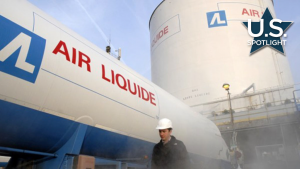Pressure is growing for companies to issue statements detailing the environmental impact of their operations. Just last week, the U.S. Securities and Exchange Commission voted to issue proposals that would require all U.S. public companies to report this information and to lay out a concrete plan for a net-zero transition.
In Canada, recent announcements made by the federal government have sent more or less the same message, encouraging various sectors within the economy to significantly reduce GHG emissions by 2030. Although these announcements lack legislative or regulatory teeth, millions of dollars have been earmarked for programs and incentives to hopefully spawn a variety of private sector initiatives. Although not specifically named in those announcements, the Canadian construction industry is implicitly part of any solution to reduce GHG emissions.
Some improvements might be affected through specific language in contract provisions that attempt to define expected sustainable operational practises. However, the larger trend is the enactment of corporate Environmental, Social Governance policies, known as ESGs.
“ESG performance is now being scrutinized as a marker of sustainable and resilient businesses which can meet the rising and complicated demands of future infrastructure,” write Caroline Pope and Shani Gunawardana of global law firm DLA Piper. “In future, only ESG-compliant businesses that deliver truly ESG-compliant projects and solutions will thrive within the construction industry.”
Company leaders might be concerned about any increased costs associated with ESGs in a time of material supply chain interruptions and labour force shortages. Will ESG policies simply add to the challenge of offering competitive pricing for future projects?
Some might be therefore tempted to simply make vague and meaningless promises about “saving the world.”
That’s called “greenwashing” or “green sheening,” defined as misleading statements and empty promises made by corporations about their sustainability ambitions.
These can be called out, damaging a corporate image. Professional legal advice can instead deal with the growing requirement for substantive ESGs in a serious manner, thereby reducing the risk of being accused of making deceptive or unsubstantiated claims about products or business practices.
In fact, many Canadian law firms are ready to serve.
McMillan LLP has announced an “expanded Sustainability/ESG offering” within its practice, reiterating the point that times are changing in terms of corporate responsibilities.
“Central bankers are flagging the risks of climate change. Social media activists are driving up public attention and driving down share prices of companies that are offside.”ESG specialists at BennettJones work with the firm’s governmental affairs and public policy group, helping clients anticipate legal and policy trends and drivers in ESG-related matters.
“Our holistic approach to risk management helps to develop policy strategies in anticipation of and in response to government policy-making and connects clients with governments to develop greater client and government awareness and advocacy.”
Western Canadian law firm MLT Atkins has appointed lawyers Conor Chell in Calgary and Samina Ullah in Saskatoon to head its ESG practice group. The objective is, “to help clients position themselves as leaders in sustainability, including ESG strategy assessment, peer benchmarking, recommendations for ESG metrics and practical advice on achieving E, S and G goals.”
Verification of any goals made within ESG policies is critical. Financiers and owners requiring ESG statements from designers and builders may have the right to take legal action should project partners not live up to their stated obligations.
It’s also important that corporate leaders understand today’s nomenclature and cut through numerous acronyms, subjective green building certifications and poorly defined self-measurements.
A statement of Corporate Social Responsibility (CSR) is an example. These are self-regulated corporate business models that supposedly demonstrate to stakeholders and the public that a company is operating in ways that are beneficial to society and the world at large. However, CSRs can be perceived as merely aspirational and lacking the third party verification now expected by investors.For companies on the fence regarding comprehensive ESGs, McKinsey Global offers this incentive.
“A strong ESG proposition helps companies tap new markets and expand into existing ones.”
John Bleasby is a Coldwater, Ont.-based freelance writer. Send comments and Legal Notes column ideas to editor@dailycommercialnews.com











Recent Comments
comments for this post are closed